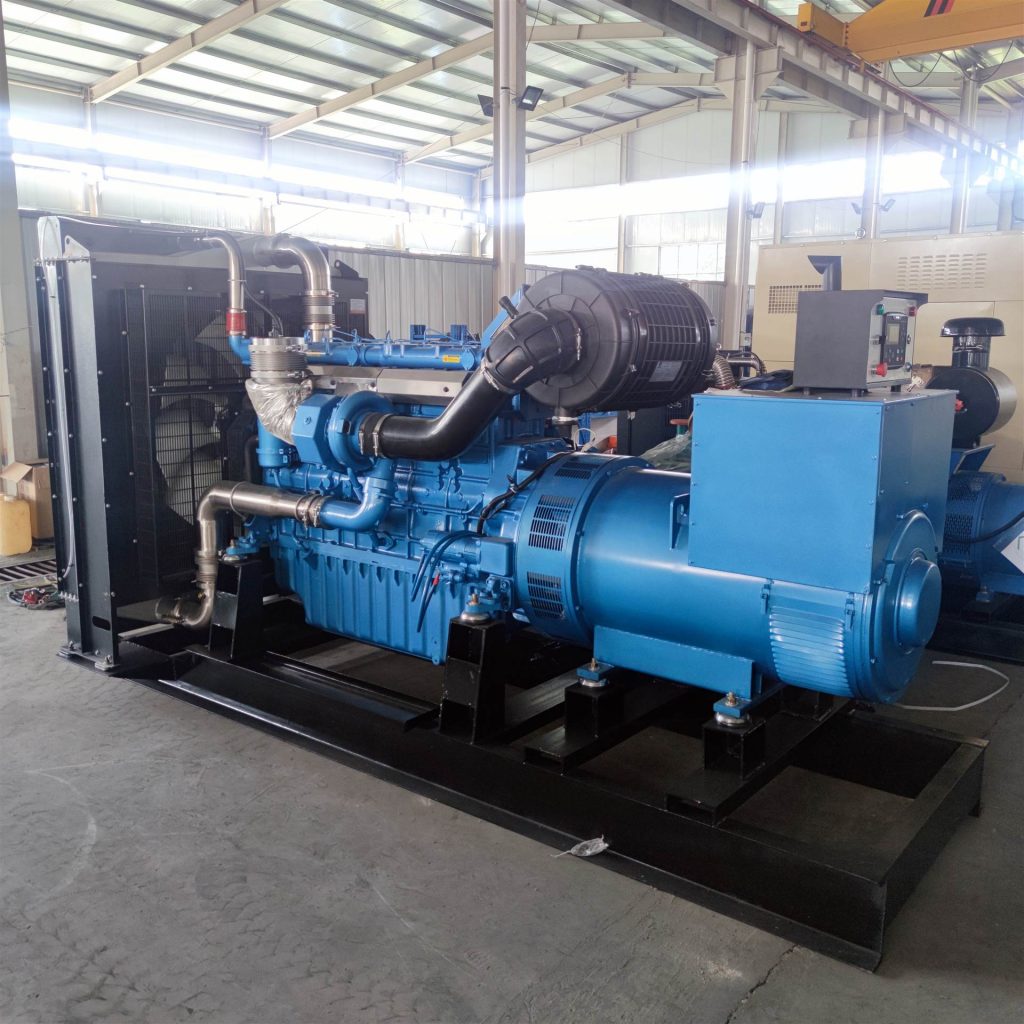Maximizing Fuel Efficiency with Diesel Generators for Effective Fuel Management

Introduction
In today's fast-paced world, reliable power supply is crucial for businesses and industries to function smoothly. Diesel generators have been a popular choice for providing backup power in various settings due to their efficiency and durability. However, with rising fuel costs and environmental concerns, effective fuel management is essential to maximize the performance and efficiency of diesel generators. This article explores the importance of fuel management in diesel generators and provides insights on how businesses can optimize fuel usage to enhance operational efficiency and reduce costs.
Understanding Diesel Generators
Diesel generators are a type of backup power system that uses diesel fuel to generate electricity. They are commonly used in settings where a reliable power supply is critical, such as hospitals, data centers, manufacturing facilities, and remote locations. Diesel generators consist of an engine that runs on diesel fuel and a generator that converts mechanical energy into electrical energy.
One of the key advantages of diesel generators is their reliability and durability. Diesel engines are known for their robust construction and ability to operate continuously for long periods without overheating. This makes diesel generators a popular choice for standby power applications where uninterrupted power supply is essential.
Importance of Fuel Management in Diesel Generators
Fuel management plays a crucial role in optimizing the performance and efficiency of diesel generators. Efficient fuel management not only helps businesses reduce operating costs but also minimizes environmental impact by reducing fuel consumption and emissions. Here are some key reasons why fuel management is important for diesel generators:
1. Cost Savings: Fuel is one of the most significant operating expenses for diesel generators. By implementing effective fuel management practices, businesses can reduce fuel consumption, leading to cost savings in the long run. Monitoring fuel usage, optimizing fuel delivery schedules, and using fuel-efficient equipment can help businesses minimize fuel expenses and improve their bottom line.
2. Operational Efficiency: Proper fuel management ensures that diesel generators have an adequate supply of fuel to operate smoothly during power outages or emergencies. By maintaining optimal fuel levels and quality, businesses can avoid downtime and ensure continuous power supply to critical systems and equipment.
3. Environmental Impact: Diesel generators are known for their high carbon emissions compared to other power generation sources. Effective fuel management practices, such as using cleaner-burning fuels, optimizing engine performance, and reducing idle time, can help businesses minimize their environmental footprint and comply with environmental regulations.
Optimizing Fuel Usage in Diesel Generators
To maximize fuel efficiency and performance in diesel generators, businesses can implement the following fuel management strategies:
1. Regular Maintenance: Regular maintenance of diesel generators is essential to ensure optimal fuel efficiency and performance. This includes inspecting and replacing fuel filters, checking for fuel leaks, and monitoring fuel consumption patterns. By keeping the engine well-maintained, businesses can improve fuel efficiency and extend the lifespan of the generator.
2. Fuel Quality Monitoring: The quality of fuel used in diesel generators can significantly impact their performance and efficiency. Businesses should ensure that the fuel meets the required specifications and standards to prevent engine damage and reduce fuel consumption. Regular testing and monitoring of fuel quality can help businesses identify and address any issues that may affect generator performance.
3. Fuel Storage and Handling: Proper storage and handling of fuel are crucial for maintaining its quality and preventing contamination. Businesses should store fuel in clean, well-ventilated tanks away from direct sunlight and moisture. Regularly inspecting fuel storage tanks for leaks, corrosion, and water accumulation can help businesses maintain fuel quality and ensure reliable generator operation.
4. Fuel Monitoring Systems: Investing in fuel monitoring systems can help businesses track fuel usage, detect inefficiencies, and optimize fuel delivery schedules. 600kw generator provide real-time data on fuel levels, consumption rates, and performance metrics, allowing businesses to make informed decisions to improve fuel efficiency and reduce costs.
5. Load Management: Efficient load management is essential for optimizing fuel usage in diesel generators. Businesses should prioritize critical loads and avoid overloading the generator to prevent unnecessary fuel consumption. Implementing load shedding strategies and using energy-efficient equipment can help businesses reduce fuel usage and improve overall efficiency.
Conclusion

Effective fuel management is essential for maximizing the performance and efficiency of diesel generators. By implementing fuel management best practices, businesses can reduce operating costs, improve operational efficiency, and minimize environmental impact. Regular maintenance, fuel quality monitoring, proper storage and handling, fuel monitoring systems, and load management are key strategies that businesses can adopt to optimize fuel usage in diesel generators. With a proactive approach to fuel management, businesses can enhance their backup power systems' reliability and ensure uninterrupted power supply during emergencies and power outages.
